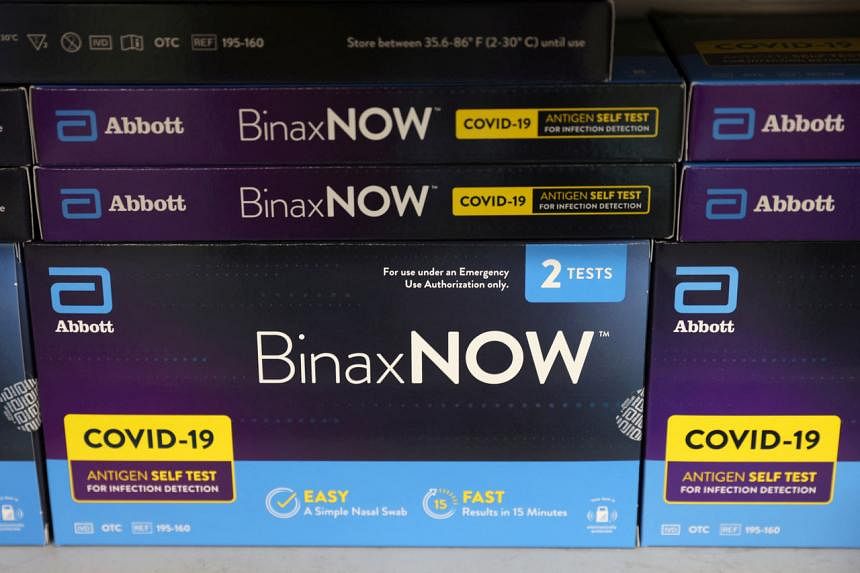WASHINGTON (NYTIMES) - The US Food and Drug Administration (FDA) on Thursday (Aug 11) issued a new recommendation that asymptomatic people who are using coronavirus antigen tests take at least three tests, each spaced 48 hours apart, to reduce the odds of missing an infection.
People who have Covid-19 symptoms should take at least two tests, 48 hours apart, according to the agency.
The new guidelines come as the highly transmissible BA.5 subvariant of Omicron continues to spread and after the Centres for Disease Control and Prevention eased its recommendation for routine surveillance testing in most circumstances.
Many people have reported that at-home tests failed to detect their infections, but studies have generally shown that rapid antigen tests are as good at detecting omicron as they were at detecting delta, the previous variant of concern.
The new recommendations are "very grounded in science," said Dr Michael Mina, a former Harvard public health researcher who is now the chief science officer for eMed, which sells at-home tests. "Sometimes it takes the virus two days to grow to a detectable level, and sometimes it takes six days to grow."
Experts have long noted that rapid antigen tests, which are less sensitive than PCR tests, are designed to be used serially and that they are most likely to detect the coronavirus when people take them repeatedly over the course of several days.
The new recommendations emphasise the need for "additional testing over a longer period of time," the agency said.
"The FDA's new recommendations for at-home Covid-19 antigen tests underscore the importance of repeat testing after a negative test result in order to increase the chances of detecting an infection," Dr Jeff Shuren, director of the agency's Centre for Devices and Radiological Health, said in a statement.
The new guidance is based on the results of a new national study, which has not yet been published in a scientific journal. The study, led by researchers at the University of Massachusetts Chan Medical School, focused on 154 people who tested positive for the virus using PCR tests between October and February.
It found that among symptomatic people, two tests taken 48 hours apart detected 93 per cent of infections. But the same testing pattern detected just 63 per cent of infections in asymptomatic people.
When people without symptoms took three tests, each two days apart, the tests caught 79 per cent of infections.











